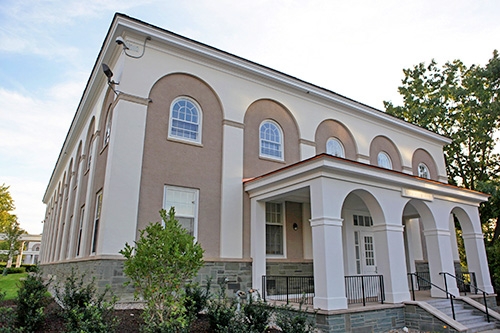
Sarina Kuersteiner
Research interests
My research centers on how economic and legal history intersect with cultural history in the medieval Mediterranean. I currently focus on two principal areas of study.
One area examines implications of cross-cultural exchange between traders of the medieval Mediterranean for our understanding of European economic history. I am fascinated by questions of how people from different geographic regions and adhering to different religions do business with each other. In my article “Whatever God Gives: Arabic and Judaeo-Arabic Rizq and Latin Resicum in Commercial Vocabulary, 1154-1164 CE” (forthcoming, Speculum), I show that the word rizq (Arabic for divine sustenance, provision, and livelihood) was used in similar contexts by Jewish, Muslim, and Christian traders. Tracing one word across Arabic, Judaeo-Arabic, and Latin documents, I argue that economic integration extended beyond the movement of goods to legal institutions. The article lays the foundation for what will become my second book project.
The other area of research focuses on the question of who the writers of commercial contracts were. In the northwestern Mediterranean cities, notarial registers, the books in which we find Latin contracts, are the unique products of notaries, who enacted the legal framework in which economic activity occurred. When sifting through the parchment and paper pages of notarial registers in Italian state archives, one quickly notes that notaries did a great deal more than write down with some extra legalese the various matters that people paid them to record. Some of them wrote love poems in the guise of the Latin legal texts that filled their registers. Others entered liturgical texts or drew images in ways that blur the boundaries between legal and cultural genres and between center and margin. Marginalia in Bolognese acts thus urge us not to equate medieval legal texts with their modern equivalents. Minds and Margins: Notarial Culture in Bologna, ca. 1250-1350 is my current book project (based on my PhD dissertation, Columbia University, 2021) and the first study to combine legal-institutional and cultural approaches in an analysis of medieval notaries and their writings. Drawing on largely unpublished acts preserved in the State Archive of Bologna, the book examines marginalia in notarial records as windows into how notaries envisioned their roles and the acts they wrote.
Teaching interests
The medieval (and modern) Mediterranean is a place marked by the diversity of its geographies and inhabitants, yet those inhabitants also shared a common cultural heritage—developing similar institutional practices and expressing similar ideas—due to the cross-fertilization of trade and intellectual activity. In this context, I am passionate about sharing with undergraduates the question of how identities were expressed during the medieval period before nation-states began drawing new borders. I approach traditional subjects of economic, social, and legal history with interdisciplinary and intercultural approaches, informed by theories and methods of literary history, musicology, art history, media studies, and psychology.
HST 351 – Medieval Minds
HST 246 – From Oracles to Mathematics: The Prehistory of Risk
HST 244 – Medieval Science
HST 141 – Bright Ages: A Medieval World (Europe), 410 CE – 1528 CE
HST 239 – Modern Extremism and the Medieval World
HST 140 & CLS 193 – History Done Digitally: Modern Analysis of the Premodern World
HST 144 – Global Medieval World
FYI (First Year Inquiry) – Religious Violence
HST 190 – Islamic World in the Premodern Era, 600 CE – 1700 CE
Publications
Articles
2026 “Whatever God Gives: Arabic and Judaeo-Arabic Rizq and Latin Resicum in Commercial Vocabulary, 1154-1164 CE.” Forthcoming, Speculum.
2021 “Ad instar quatuor elementorum: Medical and Literary Knowledge in Salatiele’s Ars notarie (1242 CE – 1243 CE).” In “Il Notaio nella società dell’Europa mediterranea (secc. XIV-XIX),” ed. Gemma T. Colesanti, Daniel Piñol, and Eleni Sakellariou, special issue, RiMe (Rivista dell’Istituto di Storia dell’Europa Mediterranea) 9 (2021): 71-108.
Book Chapters
2024 “Almost Sacred? How Bolognese Notaries Shaped the Meaning of Archives, 1289 CE – 1294 CE.” In New Approaches to the Archive in the Middle Ages: Collecting, Curating, Assempling, edited by Emily Savage, 110-129. London: Routledge, 2024.
Reviews
2021 Review of Magdalena Weileder, Spätmittelalterliche Notarsurkunden: Prokuratorien, beglaubigte Abschriften und Delegatenurkunden aus bayerischen und österreichischen Beständen. Köln: Böhlau, 2019. In Sehepunkte 21 (2021), http://www.sehepunkte.de/2021/11/35681.html
MANUSCRIPTS IN PROGRESS
2024 “Minds and Margins: Notarial Culture in Bologna, ca. 1250-1350” (book project)
Additional media
Exhibitions
Sarina is one of the co-founders of the award-winning public history project Medievalist Toolkit, building bridges between academic outreach, social work, and journalism in relation to contemporary misuses of the premodern past.
